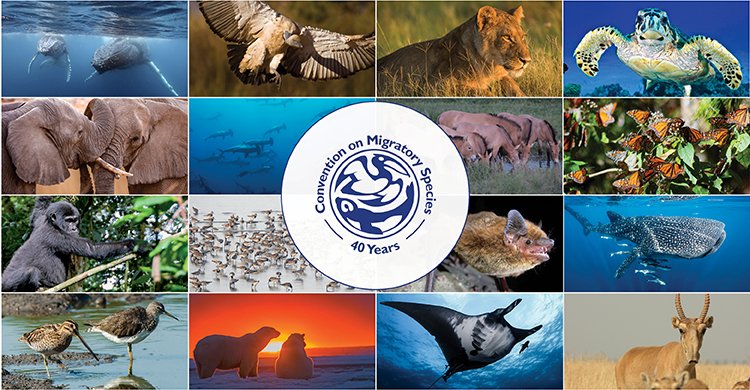According to a recent UN Report, Noise pollution is known to cause significant disturbance to marine wildlife, including migratory species protected under the Convention on the Conservation of Migratory Species of Wild Animals (CMS).
About Convention on the Conservation of Migratory Species of Wild Animals (CMS):
- CMS also referred to as the Bonn Convention, is an environmental treaty under the aegis of the United Nations Environment Programme.
- It was signed in Bonn, Germany, on 23 June 1979.
- It provides a global platform for the conservation and sustainable use of migratory animals and their habitats.
- CMS is the only global and UN-based intergovernmental organisation established exclusively for the conservation and management of terrestrial, aquatic and avian migratory species throughout their range.
- The parties to the convention acknowledge the importance of conserving migratory species, and the need to pay special attention to species whose conservation status is unfavourable.
- Activities by CMS Parties may range from legally binding treaties (called Agreements) to less formal instruments, such as Memoranda of Understanding.
- The Conference of Parties (COP) is the decision-making organ of this convention.
- CMS has two Appendices. These appendices list migratory species to which the Convention applies.
- Appendix I lists endangered migratory species and includes prohibitions regarding the take of these species.
- Appendix II lists species that have an ‘unfavourable conservation status’ (as per the conditions set out in the Convention) and encourages range states to draft range-wide agreements for conservation and management of these species.
- India and CMS:
- India has been a party to the CMS since 1983.
- India has also signed non-legally binding MOU with CMS on the conservation and management of Siberian Cranes (1998), Marine Turtles (2007), Dugongs (2008) and Raptors (2016).





Thank you sir 🥰🥰🥰🥰